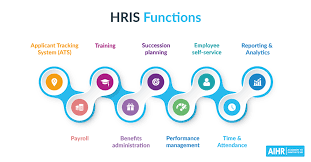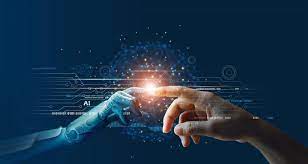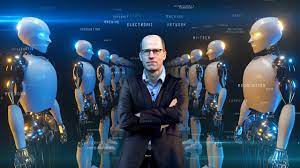The Rise of AI Devices: Transforming Everyday Life
Artificial Intelligence (AI) has revolutionized the way we interact with technology, giving rise to a new era of smart devices that are transforming everyday life. From personal assistants to smart home gadgets, AI devices are becoming integral parts of our daily routines, offering convenience, efficiency, and enhanced capabilities.
What Are AI Devices?
AI devices are gadgets equipped with artificial intelligence technologies that enable them to perform tasks typically requiring human intelligence. These tasks include speech recognition, decision-making, language translation, and more. By leveraging machine learning algorithms and vast datasets, AI devices can learn from user interactions and improve over time.
Popular Types of AI Devices
- Smart Speakers: Devices like Amazon Echo and Google Home have become household staples. They can play music, control smart home appliances, provide weather updates, and answer questions using voice commands.
- Wearable Technology: AI-powered wearables such as fitness trackers and smartwatches monitor health metrics like heart rate and sleep patterns while providing personalized insights.
- Smart Home Systems: These systems use AI to automate lighting, heating, security cameras, and other home functions for increased energy efficiency and security.
- AI-Powered Cameras: Security cameras with AI capabilities can detect unusual activity and differentiate between people, animals, and objects for improved surveillance.
The Benefits of AI Devices
The integration of AI into everyday devices offers numerous benefits:
- Convenience: AI devices simplify tasks by automating routine activities. For instance, a smart thermostat can adjust temperatures based on user preferences without manual input.
- Efficiency: By optimizing processes through data analysis, these devices save time and resources. Smart appliances can reduce energy consumption by operating only when necessary.
- Personalization: AI learns from user behavior to offer tailored experiences. Whether it’s recommending music or suggesting recipes based on dietary preferences, personalization enhances user satisfaction.
The Future of AI Devices
The future holds exciting possibilities for the evolution of AI devices. As technology advances, we can expect even greater integration into various aspects of life. Innovations in natural language processing will make interactions more seamless while improvements in machine learning will enhance device performance further.
The potential applications are limitless—from healthcare diagnostics to autonomous vehicles—AI devices will continue reshaping industries worldwide. As they become smarter and more intuitive over time through continuous learning processes driven by artificial intelligence advancements themselves!
Conclusion
The rise of artificial intelligence has paved the way for a new generation of intelligent gadgets that enrich our lives with their capabilities beyond imagination just years ago! With ongoing developments pushing boundaries ever further each day brings us closer towards realizing full potential offered by this transformative technology across all domains imaginable today tomorrow alike!
9 Reasons AI Devices Are Revolutionizing Everyday Life
- Convenience
- Efficiency
- Personalization
- Improved Decision-Making
- Enhanced Security
- Accessibility
- Productivity Boost
- Innovative Features
- Environmental Benefits
Top 5 Drawbacks of AI Devices: Privacy, Dependency, Security, Cost, and Compatibility Challenges
Convenience
AI devices offer unparalleled convenience by simplifying daily tasks and automating routine activities, allowing users to focus on more important aspects of their lives. These smart gadgets can manage everything from setting reminders and scheduling appointments to controlling home appliances with just a voice command or a tap on a smartphone. For instance, AI-powered smart home systems can adjust lighting, regulate temperature, and even lock doors automatically based on user habits and preferences. This level of automation not only saves time but also reduces the mental load associated with managing everyday chores, making life more efficient and stress-free.
Efficiency
AI devices significantly enhance efficiency by optimizing processes through advanced data analysis. By processing large volumes of data quickly and accurately, these devices can identify patterns and trends that might be overlooked by humans. This capability allows them to streamline operations, reduce waste, and allocate resources more effectively. For example, in a smart home setting, AI can adjust lighting and heating based on occupancy patterns, reducing energy consumption without compromising comfort. In industries such as manufacturing, AI-driven systems can predict maintenance needs before equipment fails, minimizing downtime and maximizing productivity. Overall, the efficiency gained from AI devices translates into time savings and resource conservation across various applications.
Personalization
AI devices excel in personalization by leveraging their ability to learn from user behavior and preferences. This capability allows them to offer tailored experiences that enhance user satisfaction and engagement. For instance, AI-powered streaming services can analyze viewing habits to recommend movies and shows that align with individual tastes, while smart home systems can adjust lighting and temperature settings based on the user’s daily routines. By continuously adapting to the unique needs and preferences of each user, AI devices create a more intuitive and customized interaction, making everyday tasks more convenient and enjoyable. This level of personalization not only improves the user experience but also fosters a deeper connection between individuals and their technology.
Improved Decision-Making
AI devices significantly enhance decision-making by leveraging advanced data analysis to provide valuable insights and recommendations. These devices can process vast amounts of information quickly, identifying patterns and trends that might be overlooked by humans. For instance, in healthcare, AI-powered systems can analyze patient data to suggest personalized treatment plans or predict potential health issues before they arise. In business, AI tools can evaluate market trends and consumer behavior to guide strategic decisions, optimizing operations and increasing profitability. By offering data-driven guidance, AI devices empower users to make informed choices with greater accuracy and confidence, ultimately leading to better outcomes across various fields.
Enhanced Security
AI-powered cameras and systems have revolutionized security by offering advanced surveillance capabilities that significantly enhance safety. These devices utilize sophisticated algorithms to detect unusual activity, differentiate between humans, animals, and objects, and even recognize faces. This level of precision allows for real-time monitoring and rapid response to potential threats. Additionally, AI systems can learn from patterns over time, improving their accuracy in identifying suspicious behavior. By providing comprehensive coverage and intelligent analysis, AI-enhanced security systems offer peace of mind to homeowners and businesses alike, ensuring that properties are protected with state-of-the-art technology.
Accessibility
AI devices significantly enhance accessibility for users with disabilities by offering features that cater to their specific needs. Voice command functionality allows individuals with mobility impairments or visual challenges to interact with technology effortlessly, enabling them to perform tasks like sending messages, setting reminders, or controlling smart home devices without physical interaction. Additionally, adaptive features such as voice-to-text and text-to-speech conversion provide further assistance, allowing users with hearing or speech impairments to communicate more effectively. These innovations empower individuals with disabilities by promoting independence and improving their quality of life through seamless integration into daily activities.
Productivity Boost
AI devices significantly enhance productivity by taking over repetitive and time-consuming tasks, allowing individuals to focus on more critical activities. For instance, AI-powered virtual assistants can manage schedules, set reminders, and sort emails efficiently, reducing the burden of administrative duties. In workplaces, AI systems can automate data entry and generate reports, freeing employees to concentrate on strategic planning and creative problem-solving. This shift not only optimizes workflow but also fosters innovation and job satisfaction by enabling people to engage in tasks that require human insight and expertise. As a result, both individuals and organizations can achieve greater efficiency and effectiveness in their endeavors.
Innovative Features
AI devices are at the forefront of technological innovation, offering users a wealth of new functionalities through constant updates and improvements. These devices leverage cutting-edge advancements in artificial intelligence to introduce features that enhance user experience significantly. For instance, smart home assistants receive regular software updates that expand their capabilities, allowing them to understand more complex commands and integrate with an ever-growing list of compatible devices. Similarly, AI-powered cameras can receive updates that improve image recognition algorithms, enabling more accurate detection and analysis. This continuous evolution ensures that AI devices not only meet current user needs but also anticipate future demands, providing an experience that is always fresh, intuitive, and increasingly sophisticated.
Environmental Benefits
AI devices offer significant environmental benefits through smart energy management, playing a crucial role in sustainability efforts. By optimizing energy usage in homes and businesses, these devices help reduce waste and conserve resources. For instance, AI-powered thermostats can learn user habits and adjust heating or cooling systems accordingly, ensuring that energy is not wasted when spaces are unoccupied. Similarly, smart lighting systems can automatically turn off lights in empty rooms or adjust brightness based on natural light availability. These efficiencies not only decrease energy consumption but also lower utility bills for users. As AI technology continues to advance, its potential to further enhance sustainability initiatives and minimize environmental impact becomes increasingly promising.
Privacy Concerns
AI devices, while offering remarkable convenience and functionality, also raise significant privacy concerns due to their data collection and analysis capabilities. These devices often require access to personal information to function effectively, such as voice recordings, location data, and usage patterns. This extensive data collection can lead to potential misuse or unauthorized access if not properly secured. Additionally, there is a concern that companies might use this information for targeted advertising or share it with third parties without explicit user consent. As AI technology continues to evolve, ensuring robust data protection measures and transparent privacy policies becomes essential to safeguard users’ personal information and maintain trust in these innovative devices.
Dependency
The increasing dependency on AI devices poses a significant concern regarding the potential erosion of critical thinking skills and decision-making abilities among users. As people become more accustomed to relying on AI for everyday tasks, from navigating routes to managing schedules, there is a risk that they may begin to bypass the cognitive processes involved in problem-solving and independent decision-making. This over-reliance can result in diminished analytical skills and a reduced capacity to evaluate situations without technological assistance. Consequently, while AI devices offer undeniable convenience and efficiency, it is crucial for users to maintain a balance by engaging their own cognitive faculties to ensure they do not lose essential skills necessary for independent thought and judgment.
Security Risks
AI devices, while offering numerous benefits, also present significant security risks. Hackers can exploit vulnerabilities in AI systems to gain unauthorized access to sensitive information or take control of connected devices. This can lead to breaches of personal data, such as financial information and private communications, compromising user privacy and security. Moreover, if malicious actors gain control over AI-powered home automation systems or critical infrastructure, it could result in severe consequences, including property damage or disruptions to essential services. As AI technology continues to evolve, addressing these security challenges is crucial to ensure that users can enjoy the advantages of AI without compromising their safety and privacy.
Cost
One significant drawback of AI devices is their cost, particularly when it comes to high-end models. These advanced gadgets often come with hefty price tags due to the sophisticated technology and research involved in their development. As a result, they may be inaccessible to individuals with limited financial resources, creating a gap between those who can afford the latest innovations and those who cannot. This disparity can prevent many from benefiting from the convenience and efficiency that AI devices offer, potentially widening the digital divide and limiting access to cutting-edge technology for a broad segment of the population.
Compatibility Issues
One of the significant drawbacks of AI devices is compatibility issues, which can pose challenges for users trying to integrate them into their existing technology setups. Many AI devices are designed with specific ecosystems in mind, and they may not work seamlessly with products from different manufacturers or older technologies. This lack of interoperability can lead to frustration for users who expect a smooth, cohesive experience across all their devices. For instance, a smart home device might not communicate effectively with other gadgets unless they’re part of the same brand or platform, requiring users to navigate complex settings or purchase additional equipment to achieve desired functionality. As a result, compatibility issues can hinder the convenience and efficiency that AI devices are supposed to provide, limiting their potential benefits.




